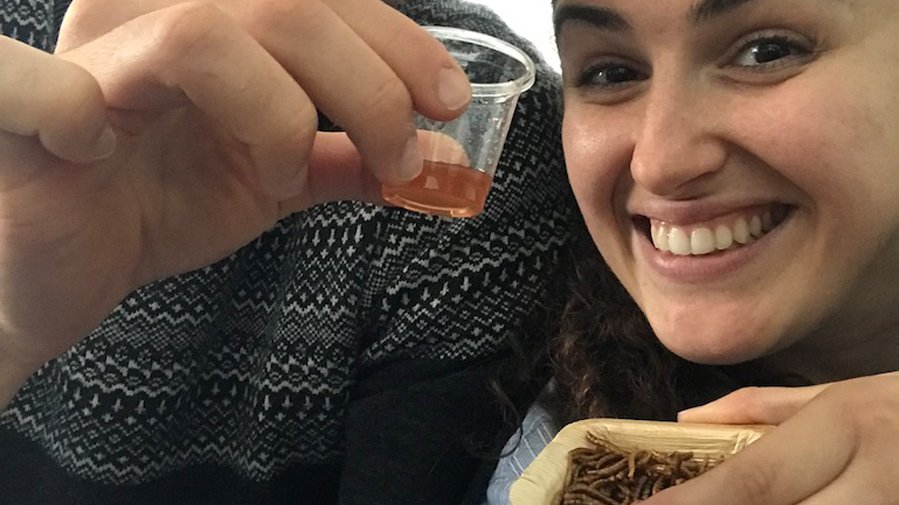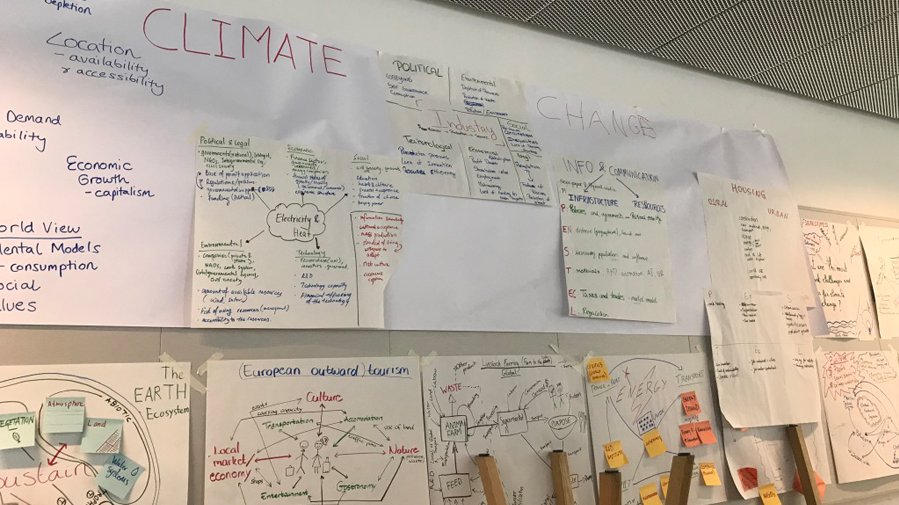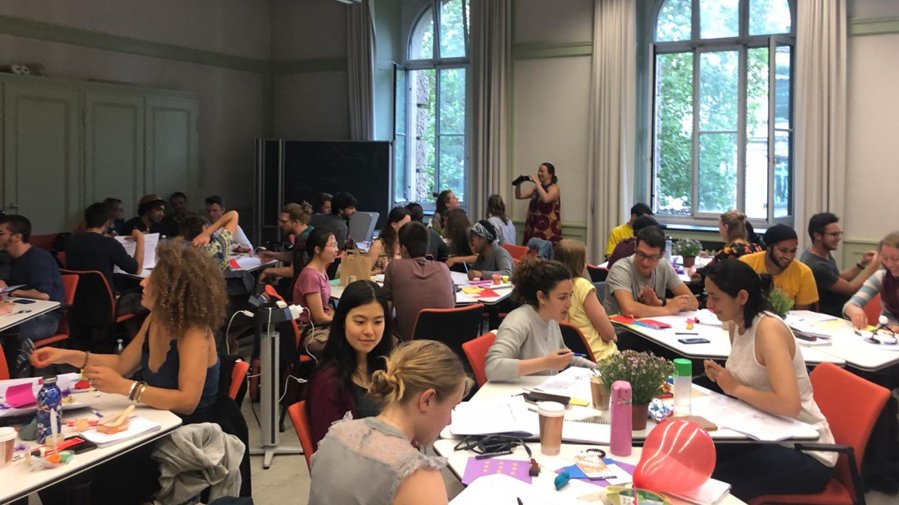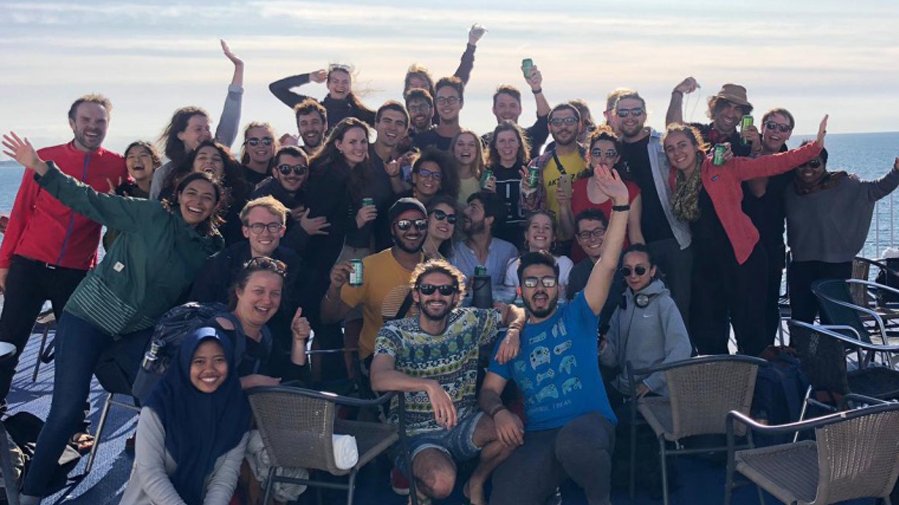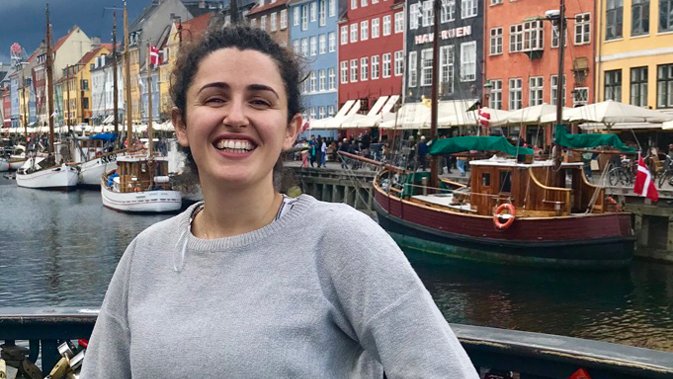Climate activist Panajota Angjeli
The environment is a huge system
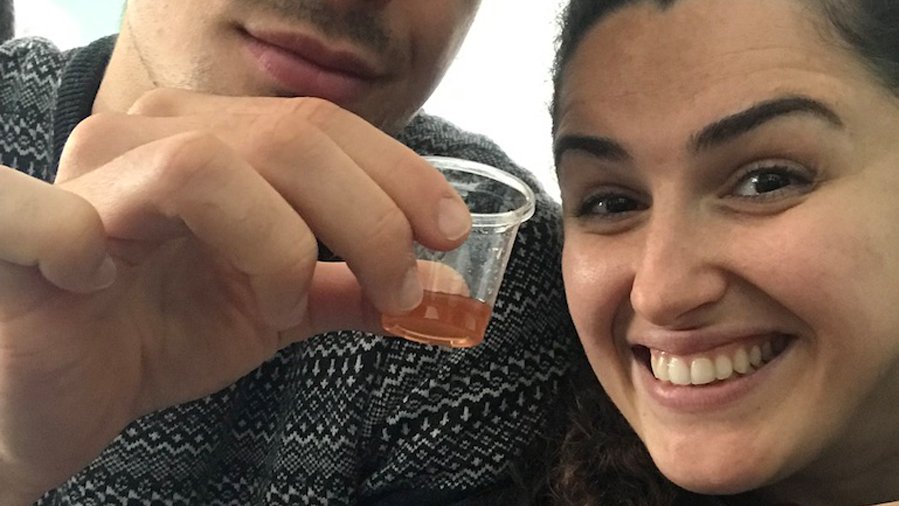
Panajota, what is the goal of the Climate-KIC Journey?
Climate-KIC aims to educate the participants about the concept of System Change. In this innovative approach, the environment is seen as a large system in which many smaller systems are closely interconnected. The aim was that we, the participants, develop a system change project in which everyone cooperates to shape climate change.
Who can participate in the Climate KIC?
Any climate-interested student or university employee.
When does it take place?
Always in summer. This year, there were four groups in July and five in August. Each group consists of 40 randomly selected students who travel to three different cities within four weeks.
Where did you go to?
First, I visited Copenhagen – followed by Zurich and finally Hamburg.
According to which criteria are the cities selected?
Based on whether there is a supervisor at the university – and what climate protection activities, companies and communities there are on-site. Thus, the contents are quite different. Copenhagen was all about insects and worms – the food of the future. At the University of Copenhagen, there is even a start-up that sells insect juice, and our hostel offered insects for breakfast.
Did you try them?
(laughs) Yes, I tried crickets – baked, and as a juice – and worms.
What was the schedule?
The goal of the first location was to get inspiration and to learn from different fields. We were set up at the University of Copenhagen. There, we attended three presentations a day and visited some exhibitions and projects.
What were your highlights in Copenhagen?
There were many. I was particularly impressed by an exhibition of two students at the University for Architecture and Design. They produced clothes made completely from organic material. The Kalundborg Symbiosis in Denmark was another highlight. There, all industries are interconnected – and every output is also an input, to ensure that no waste is produced.
What were your projects?
On the last day in Copenhagen we formed teams and everyone chose to work with an ecosystem. We decided to work with agriculture and developed an idea about storing the resulting CO2 from the wine and beer production in order to resell it. Altogether, there were ten projects in different areas.
And when your project idea was settled, you traveled on to Zurich?
Exactly. We had many workshops on Design Thinking, Innovation, Market Research and Business Planning. Last weekend, we took part in a two-day boot camp to work intensively on our projects.
The last stop for everyone was Hamburg?
Yes, we were at the university there for two days. In each room, workshops by experts and presentations by the participants were hosted. During the summit, we held a private feedback session with experts on our report. After that, we had two days to consider the feedback and implement it to our project. The final deliverables included the team project and a self-reflection part with our personal thoughts and development.
What did you gain, personally?
All the inspiration, positive thoughts – and the conviction that there are solutions. I really want to change something now.
So would you recommend the climate KIC?
Absolutely! Not just because of the ECTS, but because you learn a lot more than in a whole semester, and because the personal development is great.
When did you start getting involved in climate protection?
Intensively about two years ago. During a trip to Finland, I witnessed all the impacts of climate change. I thought it was impressive how people addressed this topic and took measures to live sustainably.
What is your recommendation with regard to climate protection?
Think before you act, always – whether as a consumer, as a traveler, or as a member of society.
What are your plans for the future?
Now, I want to write my Master's thesis in sustainability, more specifically about the smallest carbon footprint of products and services based on Life Cycle Assessment. After graduation, I want to work in the field of sustainability and start my own business.
(Interview: Verena Pongratz)
Panajota Angjeli (27) was born in Athens. She is a student of TUM Management and Technology in the 4th semester of her Master's studies. The Climate-KIC is one of the Knowledge and Innovation Communities (KIC) founded by the European Institute of Innovation and Technology (EIT). This year, it took place for the fifth time in a row – and is now recognized with 6 ECTS at almost all universities. Panajota was one of 1,500 applicants, and she worked on a sustainability project together with four other students. More information: EIT Climate-KIC Journey
